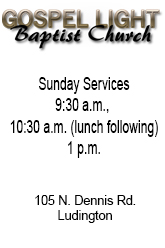
See video here.
By Rob Alway. Editor-in-Chief.
LUDINGTON — Abused and neglected children of Mason and Oceana counties have new advocates to be their voices. During a ceremony Thursday at the Mason County Courthouse, six volunteers were sworn in as court appointed special advocates (CASA) for children. Leading the ceremony were Mason County Probate Judge Jeffrey Nellis and Oceana County Probate and Family Judge Brad Lambrix along with Mason County CASA Coordinator Rick DeWeerd and Oceana County CASA Coordinator Susan Denny.
The volunteer advocates—empowered directly by the courts—will offer judges the critical information they need to ensure that each child’s rights and needs are being attended to while in foster care.
The CASA volunteers will stay with children until they are placed in permanent homes. For many abused children, a CASA volunteer is often the only constant adult presence in their lives.
While the program itself has been in existence since the 1970s, it has only been in Mason County for a few years. It was started by now-retired Probate Judge Mark Raven. Oceana County has used the program for 14 years.
“This program is a benefit to the child and is a benefit to the court,” said Judge Nellis. “The CASA is the eyes and ears of the court for that child. Each child does have a court appointed attorney but that attorney typically has a lot of cases to handle and cannot always dedicate a large amount of time. What is unique about the CASA is that he or she only represents one case.”
A CASA may be appointed to one child or an entire family or children.
Becoming a CASA volunteer does not require any particular education level. The advocate must be at least 21-years-old and has to go through an extensive background check. They are then sent to a 35-hour training and must receive 12 additional hours of training each year.
Cyleen Gee is the CASA program director for Muskegon, Oceana and Mason counties. She said the average CASA will be assigned to a case for 12 to 18 months. She said there is a great demand for volunteers in recent years.
“There is a lot to this program,” Judge Nellis said. “This isn’t a volunteer program for just everyone, but those who do volunteer find it to be a very rewarding experience. There are certainly times when that child isn’t easily responsive to the CASA but ultimately the role of the volunteer is to advise the court what is in the best interest of the child.
“One thing about this area, Mason and Oceana counties, is that there are a lot of wonderful people out there who would fit into a program like this.”
“We have had wonderful results with the program,” Oceana County Probate and Family Judge Lambrix said. “The children receive a great benefit of having a stable, reliable adult in their life who is safe. That’s very important and very effective toward assisting the court. The CASA does a wonderful job providing the court information on how the child is doing and the child’s needs are.”
The CASA is granted authority by the judge to make contact with anyone relevant to the child’s case such as the school, doctor, social worker, foster parents and other family.
Gee said the program is not about socializing with the child, though, like Big Brothers Big Sisters. “That is a wonderful program, but this isn’t that type of program. You are not always going to get a warm fuzzy feeling and you won’t always be welcome. Sometimes the kids or the parents aren’t going to be nice to you. Volunteers are going into a tough situation.
With that said, the child is often receptive to the CASA. In fact, many continue a friendship beyond the court proceedings. Gee said she has known CASA volunteers who have attended weddings and other milestone events of their former clients.
“When a CASA gets involved they are going into a family situation that is in crisis mode,” Judge Nellis said. “It makes it kind of tough. The CASA has the ability to make a difference and to help a child. Sometimes the involvement will the parent the necessary motivation to turn his or her life around. When kids go into family court, it’s all about trying to work with them, to put the services in place where our goal is to try to put the family back together. If we are unsuccessful at that, then we take it to the next step of terminating the parents’ rights and start adoption. The CASA can certainly be a strong advocate in this process.”
Rick DeWeerd can be reached at 231-510-5192 or masoncountycasa@gmail.com. Susan Denny can be reached at 231-690-6777 or through the website www.oceanacountycasa.com.














.jpg)



















 (1).gif)












.png)






